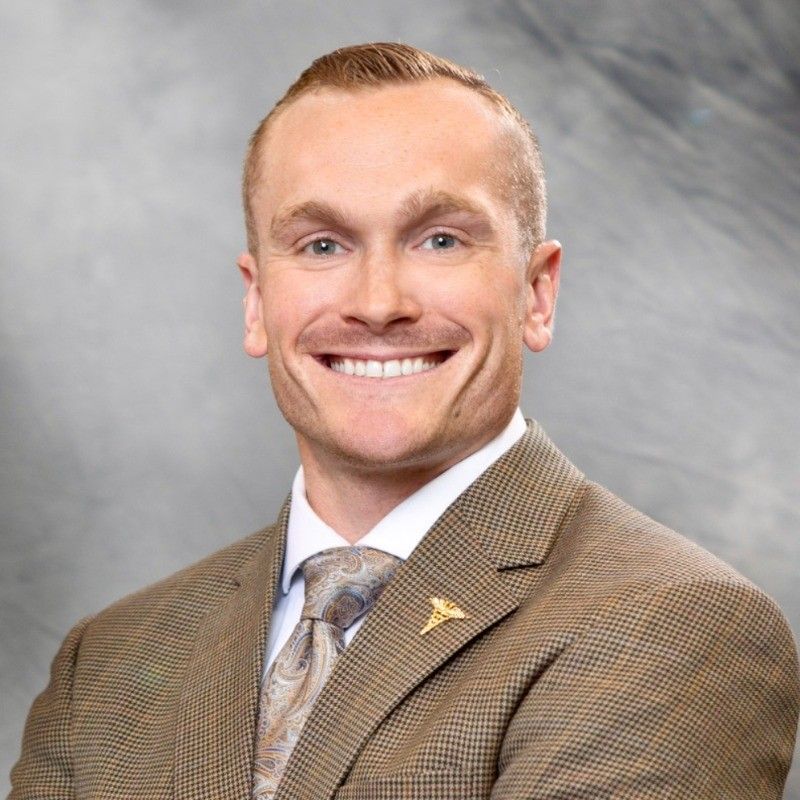Health Compiler and Hint Collaborate to Enhance Primary Care Practice Growth

Dr. Tanner Moore
From Serendipity to Healthcare Innovation: Dr. Tanner Moore’s Journey to Direct Primary Care
In the dynamic landscape of healthcare, some paths are forged through meticulous planning, while others emerge from unexpected moments of serendipity. Dr. Tanner Moore’s transition to becoming a Direct Primary Care (DPC) physician exemplifies this unique blend, illustrating how a single unforeseen event can reshape a career and the lives of countless patients. His story highlights the transformative power of bold decisions and personal experiences in revolutionizing healthcare delivery, beginning with a chance encounter during a college cheerleading practice that not only prevented a serious injury but also catalyzed his journey into medicine.
Reflecting on his experiences, Dr. Moore emphasizes how embracing unexpected opportunities can lead to extraordinary outcomes, merging personal fulfillment with a commitment to healthcare innovation. His journey serves as a testament to the idea that true calling often arises from the most unlikely circumstances, inspiring others to recognize the potential for transformation within themselves and the broader healthcare system. Through his story, Dr. Moore aims to encourage future physicians to pursue innovative models of care that prioritize patient well-being and redefine the healthcare experience.
A Serendipitous Beginning
It all began with a life-changing moment that altered the course of two lives. During a routine cheerleading practice, a college student witnessed a cheerleader take a tumble. Acting on instinct, he rushed to catch her, avoiding what could have been a serious injury. Little did he know, that cheerleader would soon become his wife, and that fateful moment would spark his journey into medicine.
"I didn’t have a clear direction back then," Dr. Moore recalls with a smile. "But in that instant, I thought, ‘This is the kind of girl who would marry a doctor.’ So, I decided to change my major to pre-med."
What started as a desire to impress someone he admired turned into a profound exploration of his inner calling. As Dr. Moore navigated his new path, he discovered that his decision led him not only to a fulfilling career but also to the love of his life.
Looking back, he reflects on how both his marriage and his medical career blossomed from that one spontaneous choice. "Embracing my inner calling was the best decision I ever made," he says. "I found two of the greatest things in my life: my incredible wife and a career dedicated to helping others. Each day, I feel fortunate to combine my passion for medicine with the joy of sharing life with someone who inspires me."
From Military Medicine to Direct Primary Care
After excelling in medical school—serving as class president and academic chief resident—Dr. Moore joined the U.S. Army, where he spent 11 years in service, ultimately becoming a brigade surgeon. His military experience sharpened his medical skills, exposed him to unique healthcare challenges, and gave him an up-close look at the systemic inefficiencies plaguing traditional medicine.
Despite his achievements, Dr. Moore grew frustrated with the limitations of traditional healthcare, particularly the seven-minute patient visits, overwhelming caseloads, and the endless administrative battles with insurance companies. These inefficiencies not only strained the patient-doctor relationship but also made the practice of medicine unsustainable. Like many physicians, Dr. Moore considered leaving medicine altogether—until a pivotal moment in 2018 changed his trajectory.
While attending flight surgeon school, Dr. Moore was introduced to the Direct Primary Care (DPC) model by a group of National Guard physicians. This innovative care model allows physicians to practice outside the constraints of insurance-based healthcare, offering patients comprehensive care for a flat monthly fee. No insurance claims, no co-pays, just high-quality, personalized care. Inspired by this model, Dr. Moore saw an opportunity to reignite his passion for medicine.
The Expensive Reality of Traditional Medicine
One of the biggest disparities between the traditional healthcare system and the DPC model is the cost of care, particularly when it comes to essential medications. For example, Truvada, a drug used to prevent HIV, can cost upwards of $2,000 per month in the United States, while the same medication is available for just $11 in other parts of the world.
This price discrepancy highlights the inefficiencies and inflated costs of the traditional healthcare system, which is burdened by layers of intermediaries—insurance companies, pharmacy benefit managers, and other third-party administrators. As a result, patients bear the brunt of these unnecessary expenses, and even physicians struggle to deliver quality care in a system rife with financial waste.
In contrast, the DPC model offers transparency and cost savings across the board. Dr. Moore’s practice provides 95% discounts on lab tests, imaging services, and prescriptions, allowing patients to receive the care they need without the financial burden of inflated prices. This transparency not only improves patient outcomes but also strengthens the patient-doctor relationship by removing the financial barriers that often complicate care.
The Benefits of Direct Primary Care
Dr. Moore’s Clearwater Health Direct Primary Care (DPC) practice exemplifies how this innovative model can transform the healthcare experience. With a patient panel of around 650, significantly smaller than the 2,000-3,000 typically managed in traditional practices, Dr. Moore is able to devote ample time to each individual. This approach allows for same-day appointments, house calls, and a level of personalized care that is often lacking in conventional healthcare settings.
One of the most compelling advantages of the DPC model is the potential for substantial cost savings. Patients benefit from reduced fees for labs, imaging, and prescriptions, which helps eliminate unexpected expenses. The transparent pricing structure ensures that patients can access comprehensive care without the burden of hidden costs. This financial clarity not only eases the stress associated with medical bills but also fosters a greater sense of trust between patients and their providers.
Furthermore, the DPC model promotes the development of stronger patient-doctor relationships. By allowing doctors to spend more time with each patient, practitioners can gain a deeper understanding of their patients’ unique health needs, preferences, and lifestyles. This personalized approach encourages open communication, enabling patients to discuss their concerns and questions in a relaxed environment. As a result, patients feel more empowered and engaged in their own healthcare decisions.
Additionally, with fewer patients to manage, Dr. Moore can prioritize preventive care and proactive health management. This focus on wellness not only improves health outcomes but also fosters a collaborative relationship where patients are motivated to participate actively in their health journeys.
Employer Engagement: Bridging the Gap
Recognizing the transformative potential of Direct Primary Care (DPC) not only for individual patients but also for employer-based healthcare, Dr. Moore has made a strategic pivot toward building meaningful partnerships with large employers. By collaborating closely with health benefits advisors and brokers, he has successfully introduced the DPC model to businesses eager to provide high-quality healthcare while significantly reducing costs.
One of the most innovative aspects of Clearwater Health’s approach is the provision of on-site care at manufacturing facilities and other workplace settings. This initiative effectively bridges the divide between traditional employer-sponsored healthcare and the more accessible retail market. By delivering healthcare directly to employees in their work environment, Clearwater Health makes it easier for workers to seek medical attention without the barriers often associated with traditional systems, such as time constraints and travel difficulties.
These employer partnerships are essential for expanding the reach of DPC, allowing organizations to offer tailored healthcare solutions that meet the specific needs of their workforce. This not only enhances employee satisfaction and retention but also contributes to a healthier workforce, ultimately leading to reduced absenteeism and improved productivity. As more businesses recognize the advantages of this model, DPC stands to create more sustainable healthcare frameworks across various industries.
Education and Advocacy: Promoting DPC’s Benefits
Dr. Moore is deeply committed to educating both employers and patients about the numerous advantages of the DPC model. He believes that many of the burdens currently afflicting the healthcare system—such as exorbitant costs, impersonal care experiences, and physician burnout—can be mitigated through a transition to DPC. His advocacy efforts focus on showcasing the tangible benefits of this model, which range from improved patient outcomes to substantial cost savings for both individuals and organizations.
By organizing informational sessions, workshops, and webinars, Dr. Moore actively engages with stakeholders to illustrate how DPC can revolutionize healthcare delivery. He emphasizes the importance of personalized care, where physicians have the time to foster strong relationships with their patients, leading to better health outcomes and higher patient satisfaction. This educational outreach not only empowers employers to make informed decisions about their healthcare options but also helps patients understand the potential for a more direct and responsive healthcare experience.
Through these concerted efforts, Dr. Moore is not only expanding his own practice but also playing a pivotal role in redefining healthcare delivery for future generations of physicians and patients. By advocating for the DPC model, he aims to create a healthcare landscape that prioritizes accessibility, transparency, and the well-being of all individuals involved. This holistic approach not only enhances patient care but also paves the way for a more sustainable and efficient healthcare system overall.
The Future of Direct Primary Care and the Role of Healthcare Analytics
The future of Direct Primary Care looks promising, as more physicians and employers embrace the model’s patient-centered, cost-effective approach. DPC is poised to expand significantly, particularly among large employers seeking affordable healthcare solutions. As the model grows, healthcare analytics will play a critical role in its continued success.
- Analytics will allow DPC providers to track patient outcomes, monitor treatment costs, and offer personalized care through data-driven insights. Here’s how healthcare analytics will shape the future of DPC:
- Patient Outcomes Tracking: By analyzing patient data, DPC practices can identify health trends, adjust treatment plans, and ensure that patients receive the most effective care.
- Cost Management: Analytics help DPC providers monitor the costs of treatments and medications, allowing them to make informed decisions that align with their goal of reducing healthcare expenses.
- Personalized Care: Leveraging data allows DPC providers to tailor healthcare plans based on individual patient needs, enhancing satisfaction and adherence to treatments.
- Predictive Analytics: DPC providers can use predictive models to foresee potential health issues, enabling proactive interventions and better management of chronic conditions.
- Quality Improvement: Continuous data analysis fosters an environment of excellence, as DPC practices can evaluate their performance and identify areas for improvement.
Conclusion: The Power of Innovation and Trusting Your Instincts
Dr. Tanner Moore’s journey from a serendipitous moment in college to transforming healthcare through Direct Primary Care is a story of bold decisions, perseverance, and innovation. By stepping away from the constraints of traditional medicine and embracing a model that prioritizes patient care and transparency, Dr. Moore has not only found a fulfilling path but also paved the way for a more sustainable healthcare future.
As healthcare continues to evolve, the DPC model offers a promising solution to the challenges of high costs and impersonal care. By focusing on patient relationships, cost transparency, and the integration of healthcare analytics, DPC is poised to become a dominant force in primary care. For physicians considering this path, Dr. Moore’s message is clear: the future of healthcare lies in innovation, and those willing to embrace new models will lead the way.
Find him on Google: Direct Primary care in Apex, NC 27502 or visit the website:
www.clearwaterhealthdpc.com
Interested to share your story?
Contact us today & Let us know!
We will get back to you as soon as possible
Please try again later

+1 415 657 8241
Health Compiler Inc.
2261 Market Street #4632
San Francisco, CA 94114
All Rights Reserved | Health Compiler Inc.
Made with ❤️ in San Francisco

QUICK LINKS
RESOURCES
LET'S STAY IN TOUCH
Contact Us
We will get back to you as soon as possible.
Please try again later.

